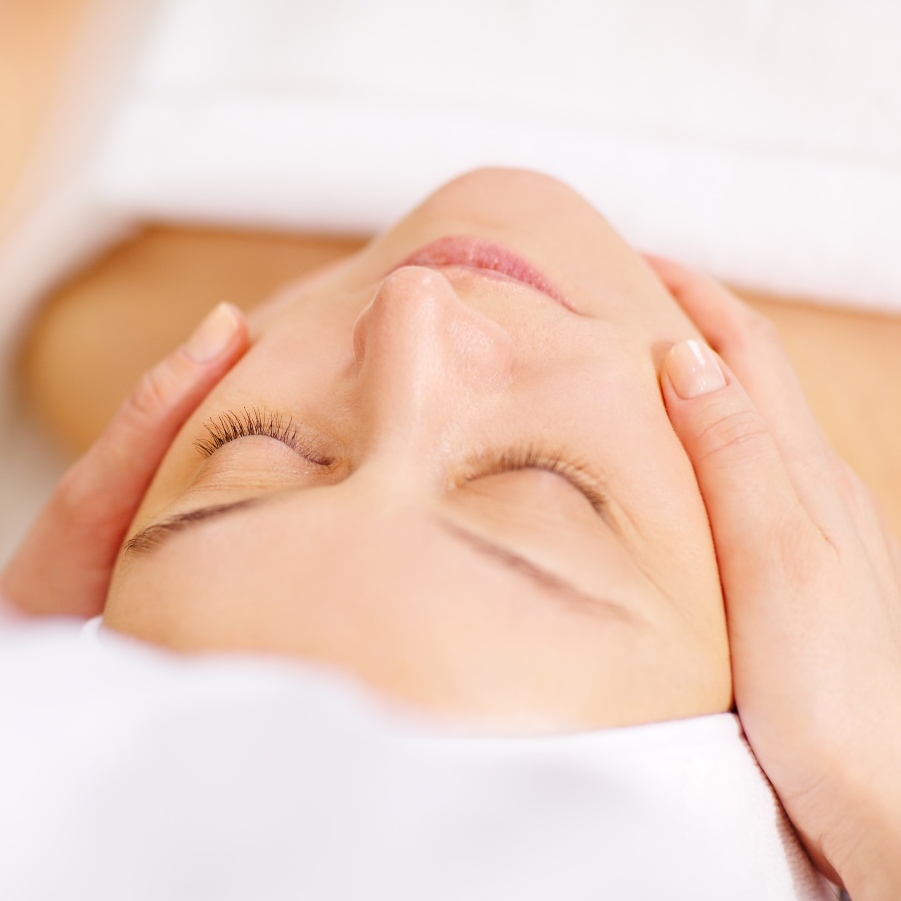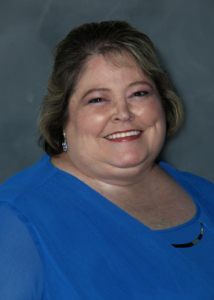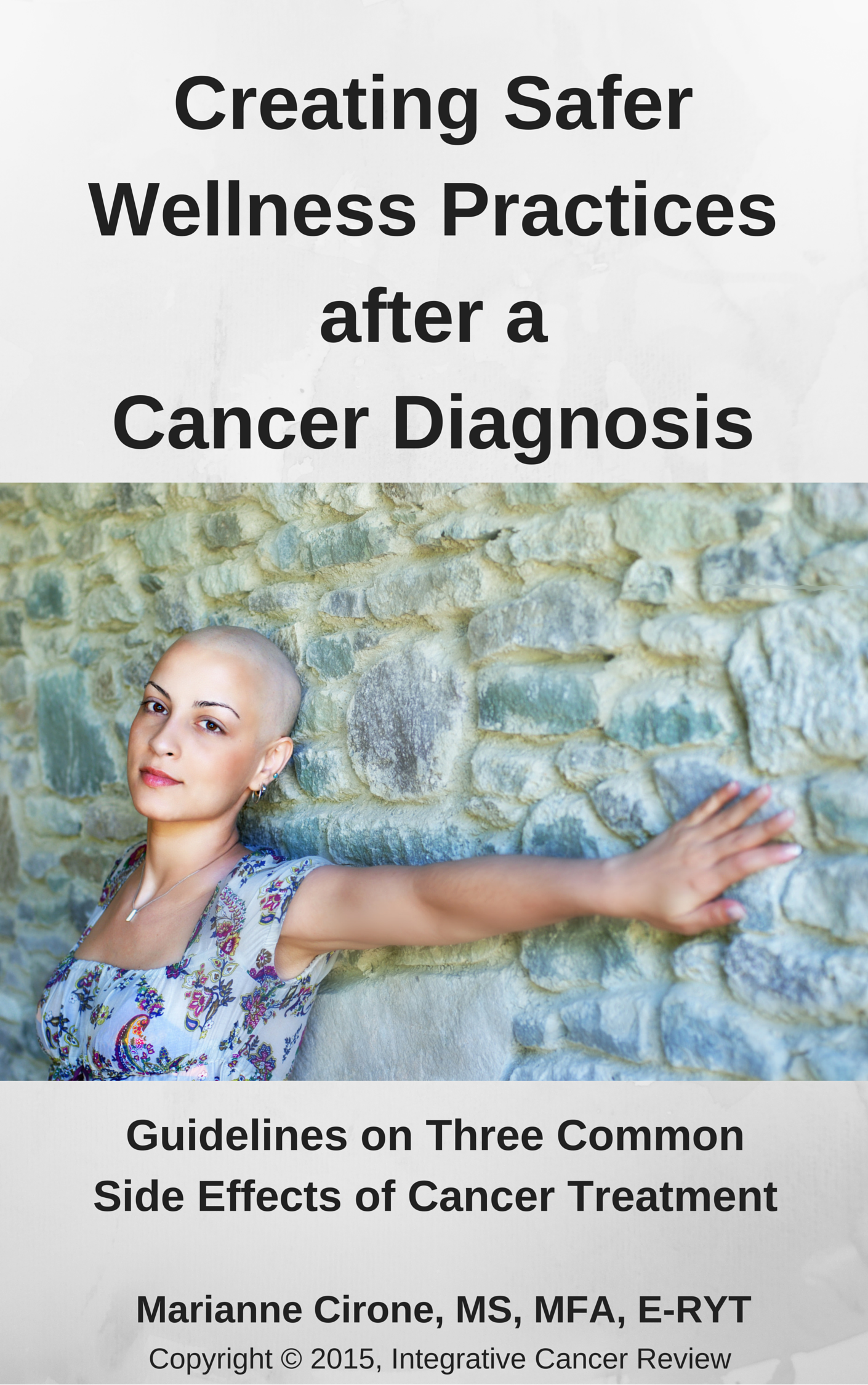
The side effects of cancer treatments are well-known, but perhaps some of the least known are skin-related, which according to research, are some of the most troubling side effects, as reported by cancer patients.
Licensed and oncology-trained esthetician, Holly Brown, recently shared her personal story and the evolution of the non-profit, Looking and Feeling FAB, Inc. She founded this organization to support patients dealing with skin-related side effects of cancer treatment and other serious medical conditions.
 Holly Brown has been living with several serious health conditions for almost two decades, and her own experience led her to seek out the Oncology Spa Solutions® training and then start her own nonprofit, Looking and Feeling FAB, Inc., to help others. Holly’s father died of lung cancer, which has kept her inspiration to succeed alive.
Holly Brown has been living with several serious health conditions for almost two decades, and her own experience led her to seek out the Oncology Spa Solutions® training and then start her own nonprofit, Looking and Feeling FAB, Inc., to help others. Holly’s father died of lung cancer, which has kept her inspiration to succeed alive.
Holly has worked with cancer centers and hospitals including: Signature Healthcare Brockton Hospital, The Cancer Support Community Center, South Shore Hospital, Old Colony Hospice, Elder Services of Massachusetts, Livestrong program through the YMCA, Virginia Thurston Healing Garden and many other local wellness centers.
Holly has seen outstanding results from her clients and has been told that her nonprofit changes lives on a regular basis. She is working diligently to obtain funding opportunities and set the bar for this type of nonprofit, the very first of its kind in the country. Her ultimate goal is to become an established fixture in local hospitals where she is readily available to help those in need.
Holly can be contacted at LookFeelFAB.org.
Starting a Non-Profit for Skin Care Side Effects
My desire to help others grew from my own experiences with several serious medical conditions. In 2000, I was diagnosed with a Relapsing/Remitting form of Multiple Sclerosis (MS). For the next thirteen years, as I went through numerous “attacks” and periods of remission of the MS, I developed other medical issues, including an autoimmune lung disease called sarcoidosis. Having the two autoimmune diseases changed my course of treatment and I was placed on Rituxan, a form of chemotherapy given through an eight-hour infusion every six months.
This treatment wreaked havoc on my skin and this experience fueled my passion for Oncology training. It also gave me the support and momentum to start a nonprofit to help alleviate these life-altering, skin-related side effects in other patients. Despite a lack of encouragement, I put my mind to it and Looking and Feeling FAB, Inc. successfully received 501(c)(3) status.
As I began to educate people and sought out funding, I quickly realized this would be no easy feat. I soon found that I had my work cut out for me because skin care was looked at as a luxury–not a necessity. I continued to push until I achieved some of our goals, and then that pushed me further. Today, Looking and Feeling FAB, Inc. has accomplished much, building a reputation as a skin care service that changes lives.
The Critical Importance of Educating Patients
The most important aspect of our work as skin care professionals at Looking and Feeling FAB is to educate people and to reinforce how important our services are. For example, imagine that first you have the stresses of life, then you get a cancer diagnosis, and then you develop these horrific skin side effects — you are facing a whole different level of survival. This is what our clients are going through.
We are fortunate to be able provide these services free of charge to those who really need them by fundraising for the cause. We are also fortunate to work with great skin care companies who believe in our mission and support our cause. No case is ever the same and no two cases have the same treatment plan. But the appreciation and gratitude that we receive certainly brings this profession to another level and for that I am forever grateful.
The Benefits of Oncology-focused Skin Care Protocols
Skin is the largest organ of the body, so good skin care habits contribute to good overall health and well-being. When someone undergoes a treatment for cancer or other serious illness, we say that their skin is forever compromised.
The role of cancer treatments is to attack and eliminate the cancer cells. But because the treatments usually cannot decipher between good cells and cancer cells, skin, hair and nails are the typical places we see reactions or side effects from treatment.
Our estheticians are trained by Oncology Spa Solutions®. The practice of Oncology Esthetics gives licensed estheticians the training they need to provide comfort and relief using esthetic therapy for clients undergoing treatment for, or recovering from cancer. Through specialized, intensive clinical training from Oncology Spa Solutions®, the estheticians will gain a deep understanding of the effects of cancer on the body and how best to safely accommodate those clients while working alongside oncology specialists and other medical teams.
With oncology-trained esthetics, we learn to use safe and toxic chemical-free products, along with esthetic therapy to provide comfort and relief from these often times life-altering side effects. We help prevent and combat conditions including radiation dermatitis (burns), dryness, thinness, redness, rash, itchiness, excessive hair growth, acne, poor wound healing and more. We now also employ massage therapists that are oncology-trained to offer a safe enjoyable service to our clients.
Research on Oncology-Related Skin Issues
Fortunately, research on oncology-related skin issues is helping to educate the public and medical practitioners on the need for specialized skin care services. For example, a study published by the American Academy of Dermatology shows that patients rated skin irritation and dry skin as the two most troublesome side effects of cancer treatment, ranking well above other common ailments, such as insomnia, fatigue, hair loss, diarrhea, and nausea and vomiting.(1)
An article published in Current Oncology Journal, Aug. 2010, stated “Approximately 85% of patients treated with radiation therapy will experience a moderate-to-severe skin reaction. Acute radiation induced skin reactions often lead to itching and pain, delays in treatment, and diminishing aesthetic appearance and subsequently a decrease in quality of life.”
A third study, published in the August, 2008 issue of Dermatology Nursing, showed that “80% [of cancer patients] were concerned about the actual skin effects they experienced as a result of their treatment and how those side effects – namely, irritation, rash, and dryness—affected their quality of life. Many people starting cancer treatment are unprepared for its effect on their skin, with 63% of respondents agreeing that “The effect or impact on my skin was worse than I thought.”
Benefits of Oncology-focused Skin Care
Looking and Feeling FAB, Inc. constantly receives glowing reviews from participants in our programs, including the following excerpts:
Amy, Breast Cancer Survivor – I met Holly through the Look and Feel Fabulous class. My skin went through many changes with the chemo and radiation. [After my skin care treatments] my skin improved and people noticed how great my skin looked. I was able to start the oil and lotion regime prior to my radiation treatment. It was a great help to my skin. I had very minimal burning and redness to the skin during treatment. Staying on top of the skin treatments helped my journey through radiation. My physician and nurse team were all very impressed. To date, I do not have redness or discoloration. I have continued my skin treatments post-chemo and radiation and they have helped my skin maintain its flexibility and smoothness. The regime has helped through physical therapy and for preparation for my last breast surgery. I have found the program extremely beneficial and have recommended it. My nurses were not aware of the program and now have information to help others. I will continue with the products moving forward. I will be looking forward to making appointments with my aesthetician.
You can hear more great stories from Looking and Feeling FAB’s clients by clicking here.
How can people find out more about you and your work?
Feel free to visit our website and you can also like us on Facebook. You can provide us with your email address for our monthly newsletter and stay up to minute on our fundraisers and events.
We are happy to provide educational presentations to those in the medical community and those associated with cancer. I am also happy to answer any questions people may have and share my knowledge. I can be contacted at holly@lookfeelfab.org.
(1) Lacouture, Dr. M. (2011). Skin conditions could hinder treatment in cancer patients, negatively impacting quality of life. Retrieved from http://www.aad.org


















